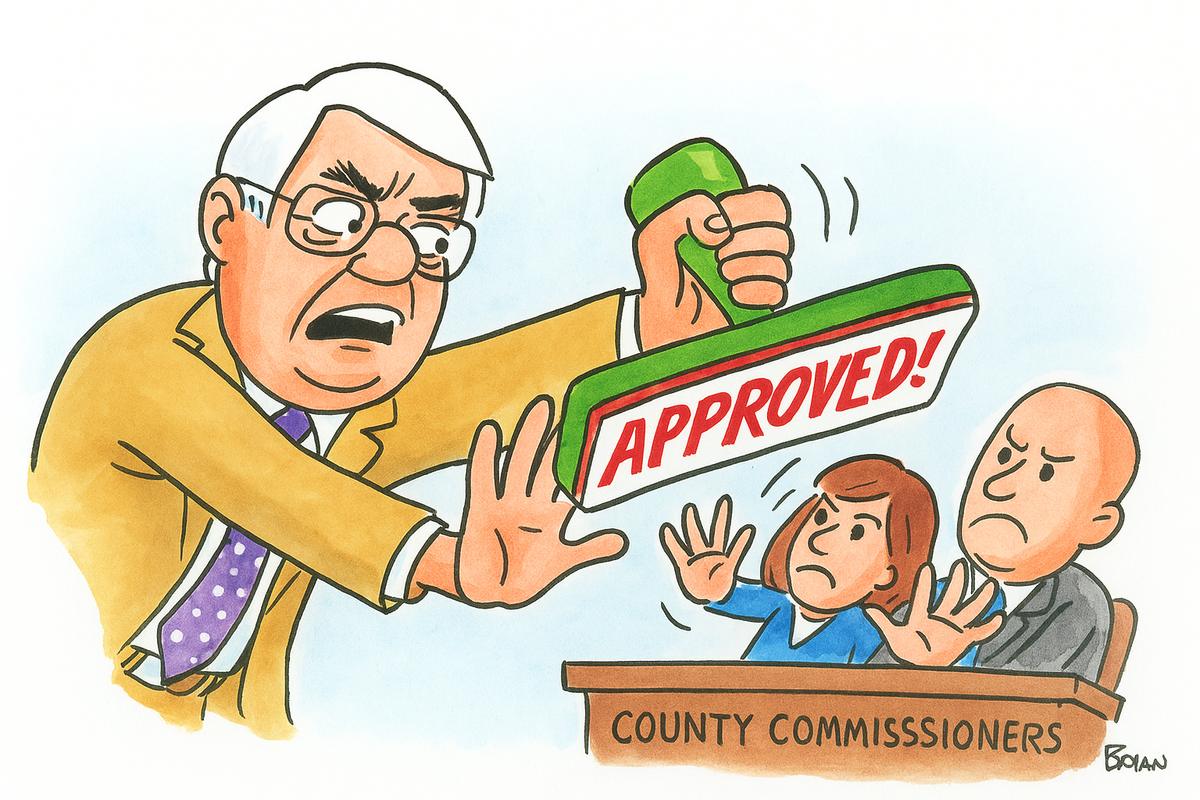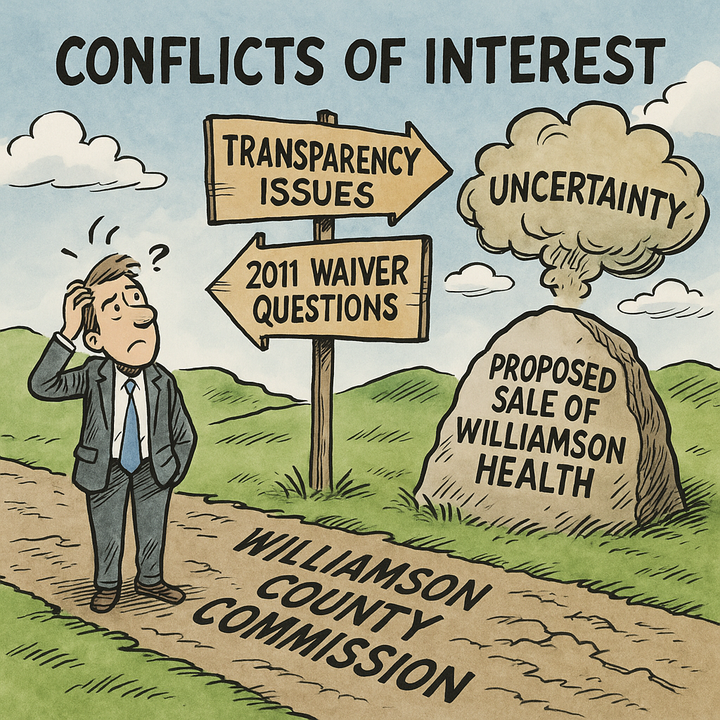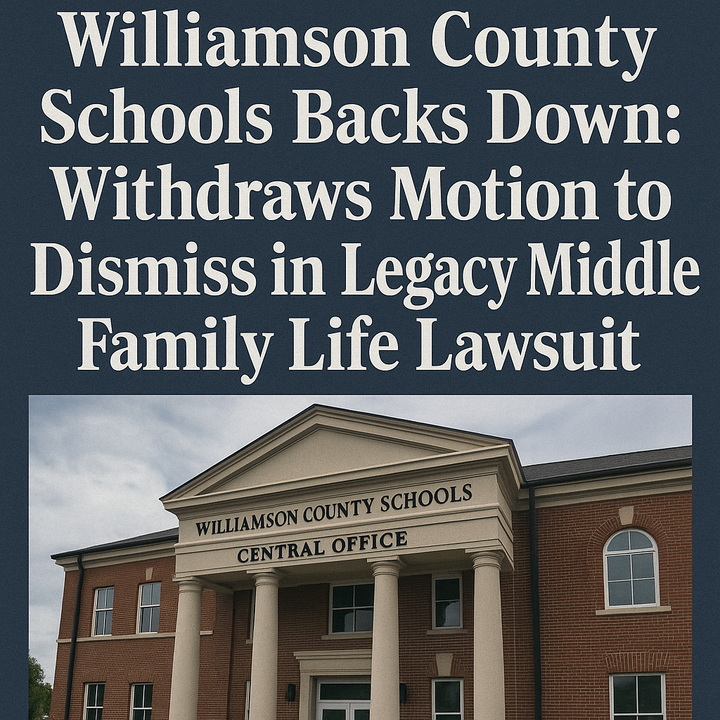Commissioners Hayes and Richards are voicing skepticism over a late-filed $90M stop-loss insurance vote in Williamson County, citing missing contracts, lack of bid details, and a rushed process that left little time for informed debate.
At last night’s monthly meeting of the Williamson County Commission, two commissioners are pushing back against what they describe as a rushed and opaque process to approve a $90 million insurance item—without so much as a contract attached. Resolution No. 6-25-40, which would approve the renewal of stop-loss insurance with Cigna Healthcare for all county employees, was late-filed just days before the June 10 commission meeting, prompting sharp objections from Commissioners Lisa Hayes (District 1) and Christopher Richards (District 7).
The resolution would authorize Mayor Rogers Anderson to execute a one-year contract with Cigna for stop-loss coverage beginning July 1, 2025. But neither the contract, nor any cost figures or bid documentation, were included in the resolution presented to the Commission. According to Commissioner Hayes, the vote amounts to rubber-stamping a major financial commitment without adequate information.
“This is a $90 million line item,” Hayes said during the meeting. “We’re being asked to approve it with no transparency, no detail, and no opportunity for a commission-wide meeting to understand who the bidders were, why Cigna was selected, or what changes—if any—will impact county employees.”
Commissioners were told that the contract must be approved before July 1 in order to avoid a lapse in coverage. If the resolution was not heard on June 10, Mayor Anderson warned, he would call a special meeting on June 20 to ensure passage. Yet the rushed timeline and lack of transparency raised concerns—not only among objecting commissioners but among observers. For some, the process evoked the same rushed, high-stakes atmosphere as past federal legislation that passed under similar scrutiny-evading circumstances. A massive financial obligation, no clear documentation, and pressure to vote before all the facts were known—those familiar with the Obamacare rollout couldn’t help but note the similarities.
More troubling is the fact that Mayor Anderson and county staff were aware of this looming deadline well in advance. If this issue was so urgent, why weren’t commissioners given all relevant documentation earlier? Why wasn’t there a commission-wide meeting scheduled in the months leading up to the vote? And why was no contract attached to the resolution—a basic requirement for evaluating what the county is actually agreeing to? The law compels transparency and record-keeping for competitive bids, but here, that legal standard appears to have been neglected. Instead of ample time for discussion and analysis, commissioners were handed a last-minute resolution with no cost and no contract, and were pressured to approve it under the guise of urgency.
What Is Stop-Loss Insurance? Stop-loss insurance protects self-funded health plans from catastrophic claims by placing a ceiling on the amount the county would have to pay for any single high-cost medical case. While technical in nature, it plays a critical role in protecting the county’s financial health—and therefore demands careful scrutiny. The problem? Most commissioners were not given any documentation to help them understand what was at stake.
Under the County Purchasing Law of 1957 (TCA § 5-14-108), any purchase above the bid threshold must be awarded through competitive bidding. A record of all competitive bids must also be retained for five years. Yet Resolution 6-25-40 makes no mention of competing bids, does not disclose a cost, and does not include a copy of the contract for review.
According to several commissioners who spoke with TruthWire News, even basic information—such as the list of vendors who submitted bids—has not been made available to them. One commissioner admitted that he doesn’t recall ever voting on this type of item in the past, raising further questions about why this year’s renewal is being pushed through so aggressively.
While the resolution was discussed in the Purchasing and Insurance Committee, those meetings are neither recorded nor published with detailed agendas, limiting the ability of citizens or other commissioners to engage in oversight. Hayes and Richards both emphasized that this is not just about opposing a single contract—it’s about ensuring fiscal responsibility and government accountability.
“Most people in this room probably couldn’t tell you what stop-loss is,” Hayes said. “And I think it’s the obligation of the Benefits Committee, the mayor, and those involved to make sure everyone is fully educated before we make a decision this large.”
Mayor Anderson defended the urgency, saying a six-month policy would cost millions more than a one-year renewal and that the committee had already voted unanimously to select Cigna. Still, as Hayes noted, many commissioners—including herself—were not present at the most recent meeting and had not been invited to participate in any full-commission discussion about the broader insurance structure.
The episode raises serious questions about process, oversight, and whether the county’s elected officials are being given the tools they need to make informed decisions. In the name of expedience, vital safeguards appear to have been bypassed.
Commissioner Richards has gone a step further. On June 10, he sent a formal letter to Tennessee Comptroller Jason Mumpower, requesting an immediate investigation into the County’s 2025–26 health insurance procurement process. The letter outlines numerous concerns, including apparent violations of competitive bidding law (TCA § 5-14-108), the Open Meetings Act (TCA § 8-44-103), and County Rules 6.1 and 6.2, which require timely filing and budget committee review.
Richards pointed out that neither commissioners nor the public have been provided cost data, contract language, or a list of competing bids—raising doubts about whether Cigna was actually the “lowest and best” provider. He asked the Comptroller’s office to audit the procurement trail and advise whether the vote on June 20 would be lawful under the current conditions.
The Commission is now expected to reconvene for a special meeting on June 20 to hear the resolution before the coverage lapses on July 1.
Whether commissioners get the transparency they’ve asked for by then—or whether they’ll once again be voting in the dark—remains to be seen.
If you support what I do, please consider donating a gift in order to sustain free, independent, and TRULY CONSERVATIVE media that is focused on Middle Tennessee and BEYOND!






Comments ()